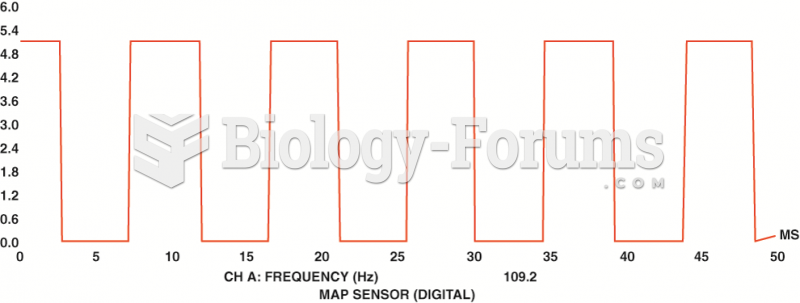|
|
|
The training of an anesthesiologist typically requires four years of college, 4 years of medical school, 1 year of internship, and 3 years of residency.
Long-term mental and physical effects from substance abuse include: paranoia, psychosis, immune deficiencies, and organ damage.
According to the CDC, approximately 31.7% of the U.S. population has high low-density lipoprotein (LDL) or "bad cholesterol" levels.
Although not all of the following muscle groups are commonly used, intramuscular injections may be given into the abdominals, biceps, calves, deltoids, gluteals, laterals, pectorals, quadriceps, trapezoids, and triceps.
More than 50% of American adults have oral herpes, which is commonly known as "cold sores" or "fever blisters." The herpes virus can be active on the skin surface without showing any signs or causing any symptoms.
 Pulse oximetry with the sensor probe applied securely, flush with skin, making sure that both sensor
Pulse oximetry with the sensor probe applied securely, flush with skin, making sure that both sensor
 In the box on upward social mobility on page 82, we discussed how Latinos face a similar situation. ...
In the box on upward social mobility on page 82, we discussed how Latinos face a similar situation. ...





